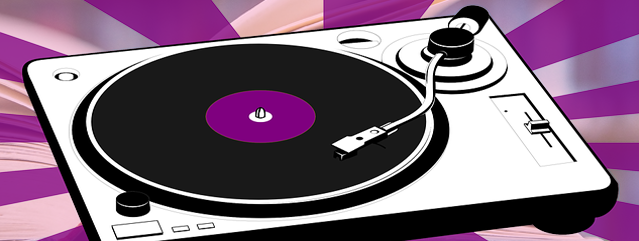Music and Memory

While researching the effects of music on memory for an article I recently wrote for my local newspaper, I had the opportunity to speak with a participant of an adult day program in the area. Like most of the other participants, he has Alzheimer’s. When speaking with him, he shared with me his life-long passion for classical music, and invited me to listen to one of his favorite albums that he just happened to have with him at the program that day. He slipped it onto the 1940’s turntable situated in the center of the homelike furnished room, then lowered the needle onto the record. He started humming to the piano solo, snapping his fingers, sweeping his arms through the air, performing a music conductor’s dance.
The music did something for him, to him. Perhaps you know what that feels like. When you hear a specific song from your past, what happens? You can’t help but time-travel in your mind, linking that song to a long-ago, meaningful event, like the day you got married, or your high school senior prom, or the one, and only, time you sang Karaoke. Research indicates that listening to music activates regions in the brain responsible for motor activity, emotions, creativity, and autobiographical memories. Listening to music is particularly beneficial to those suffering from memory loss, whether it’s from a traumatic brain injury, dementia, or Alzheimer’s. Music calms ceaseless brain static, helping one to focus on the present and recall long-term memories.
Dan Cohen, a social worker who founded the non-profit Music and Memory, recognizes the benefits of music, particularly for those suffering from memory loss. His wish to be able to listen to his favorite 60’s music if he were living in a nursing home was the driving force behind his idea to bring iPods, or other digital music technology into elder care facilities, with the goal of delivering personalized music to the residents, thereby improving quality of life. The miracle-like effects of Music and Memory are evident in the documentary “Alive Inside.” The film features a nursing home resident wearing an iPod, listening to his favorite Cab Calloway songs. Within seconds of hearing the first song, he re-awakens, the music stirring him from his sedate, nearly unresponsive state. His eyes snap fully open, his voice singing in a clear vibrato, as if someone just reset his memory’s circuit breaker.
When I told my husband and two of his adult daughter’s, Rachel and Hannah, about Music and Memory during a recent family gathering we decided to make a list of our favorite songs to share with one another. We each took turns playing them on our iPhones, and, as we did, something remarkable happened: a flash-flood of melodic memories. “Hobo’s Lullaby!” Hannah called out. “Remember, Rachel, Dad used to play it all the time.” Then it was Rachel’s turn: “I learned this Fleetwood Mac song on my guitar. When was that, like ten years ago?” When I played “Cat’s in the Cradle” by Harry Chapin, I felt as if I was back in high school again, singing out loud with my friends, “And the cat’s in the cradle and the silver spoon, little boy blue and the man in the moon …”
Which songs jump start your time-travel engine? Where do those songs take you?
Read More



Recent Comments